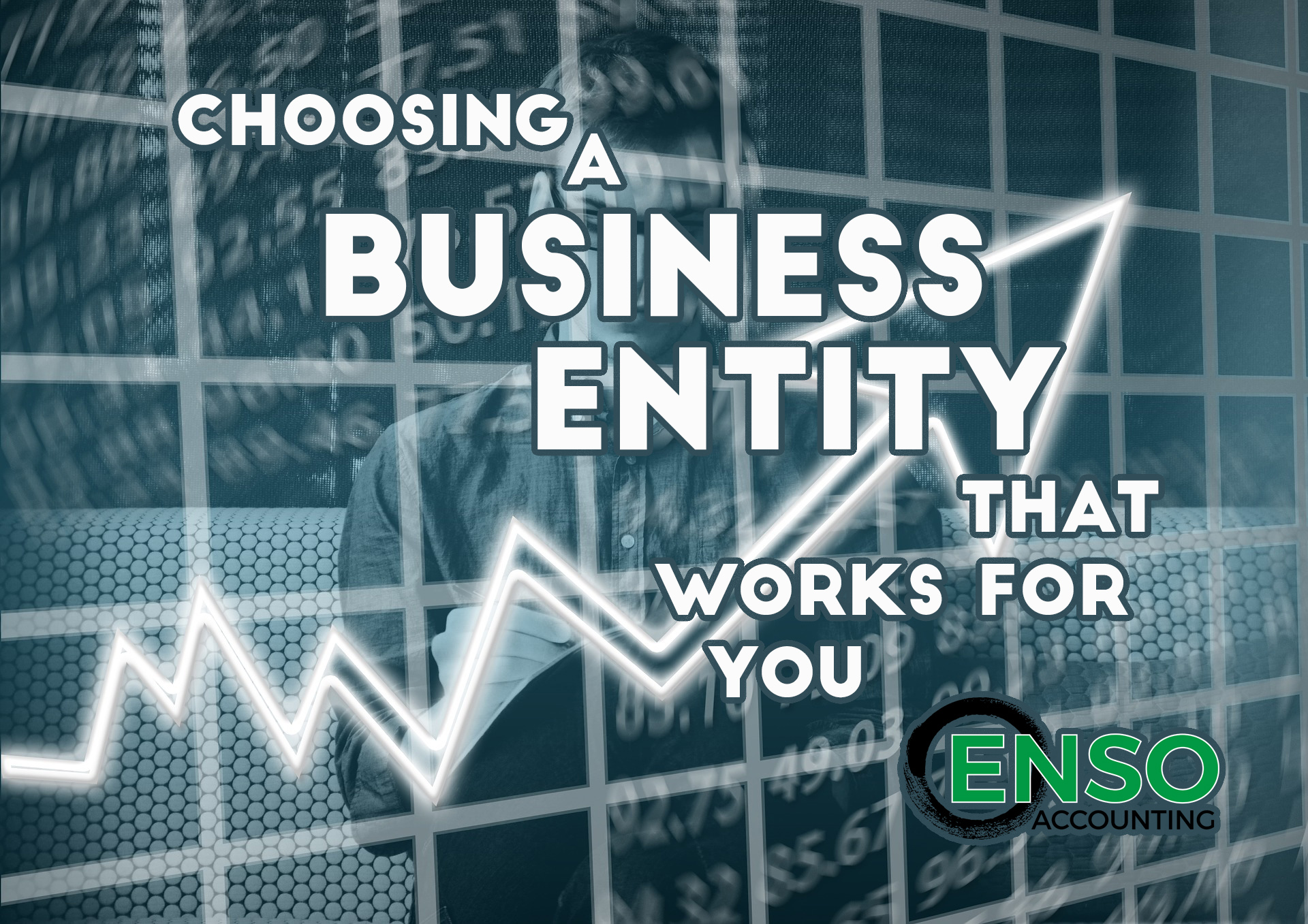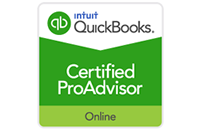When you own a business, you’re confronted with important choices all the time. Such as when to grow, when to scale back, and what business entity will serve you best. Even in an established company, you may want to review your structure to ensure it still makes sense. The right accountant can help you with all of the above! Starting with a basic breakdown of your options:
Sole Proprietorship
Many business owners start out in this role because it’s seen as the easiest (and least expensive) option for start-ups. Especially if you’re establishing everything on your own, a sole proprietorship could be a great first choice as far as business entities go. It gives you complete control over operations, assets, etc. The main drawback is that as a sole proprietor, you arethe business. There’s no separation between the business and your personal stuff—at least not when it comes to assets and liability. On the one hand, that gives you a lot more liquidity if you need to invest or switch gears. On the other, it also means you stand to lose more if there are any outstanding debts or court costs. Plus, you can’t forget about the dreaded self-employment tax! As your business grows and changes, you may find yourself naturally moving away from this category.
Partnerships
When there are multiple people behind a business, sole proprietorship isn’t really an option. Instead, we’ll have to look at partnerships more closely! This business entity is mainly driven by the partnership agreement. It varies from company to company, but it should outline all the details of your arrangement. Including how profits/losses will be divided, how to liquidate assets, how to settle disputes between the partners, and even how it should be dissolved if the partnership doesn’t work out. Because this type of business requires a vote of sorts to move forward on many decisions, it can become somewhat frustrating if you’re at odds with the other partner(s). Try to be careful about who you choose to fill this role. Not only will you have to maintain a good working relationship with them, but you’ll also share liability jointly. So, their poor decisions could ultimately cost you.
Corporations
Now, here’s where it gets interesting. If you want to take the next step toward a formal business entity, a limited liability corporation (LLC) could be the way to go. It’s titled appropriately because it helps to limit your liability as the business owner more than a sole proprietorship or partnership. Furthermore, it can put you in a better position for taxation—provided you work with an experienced accountant who sets it up properly.
When there are many owners—or shareholders—involved in your setup, an S corporation could be a better fit. As long as there are less than 100 shareholders involved, you should qualify for this more complicated entity. It’s subject to less taxes, both at the corporate and individual level (for the business owner), but you pay for that with greater restrictions. In this entity, there are requirements for governance, operations, payroll, etc. Plus, you’ll have to keep up with compliance as these rules shift over the years. We generally recommend this option for more established companies, since the record-keeping alone can be overwhelming for a new business.
If serious growth is in your future plans, then it’s time to look at a C corporation. With an unlimited number of shareholders allowed, this business entity is ideal for publicly-traded companies. To that end, it makes it much easier to raise money for new ventures. But at the cost of transparency. When you think about it, each shareholder is like another owner. In order to encourage investment and satisfy reporting requirements, you have to be extra detailed in your records. Be prepared to publish them openly, too. Under this particular entity, taxation gets especially complicated. Between the dividends, draws, and other forms of income, you’ll want to talk through this option thoroughly with a tax professional before proceeding.
Fortunately, our experienced accounting services extend well beyond tax preparation. We can work with you to find the most advantageous business entity for your company and then review it regularly to ensure it’s keeping up with you! To talk more about this topic, contact us today to set up an in-person consultation. At ENSO Accounting, we’re all about creating custom solutions for your business!




